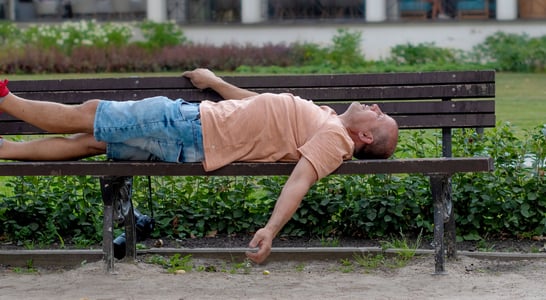
National Therapeutic Recreation Month
National Therapeutic Recreation Month, celebrated in February, shines a spotlight on the important work of recreation therapists. This month is dedicated to appreciating these professionals and raising awareness about the benefits of recreational therapy!
How to Celebrate National Therapeutic Recreation Month
Host a Silly Sports Day
Celebrate with a wacky sports event! Think three-legged races, sack jumps, and egg-and-spoon relays. Invite friends, family, and neighbors to join the fun.
Encourage everyone to dress in their most outrageous sports attire. Laughter and joy are guaranteed as participants stumble, hop, and giggle their way to the finish line.
Crafty Corner Creations
Unleash your inner artist by hosting a crafting session. Gather colorful supplies like paper, glue, beads, and paint. Create beautiful artwork, jewelry, or fun decorations. Not only is crafting a fantastic way to relax, but it also stimulates creativity and fine motor skills. Display the masterpieces at home or share them as thoughtful gifts.
Nature Walk Wonders
Explore the great outdoors with a therapeutic nature walk. Choose a scenic trail and invite others to join. Enjoy the sights and sounds of nature while getting some gentle exercise.
Make it a scavenger hunt by looking for specific plants, birds, or landmarks. Fresh air and movement boost physical and mental health.
Game Night Extravaganza
Plan a lively game night filled with classic and modern board games. Gather family and friends for an evening of friendly competition and laughter. Include games that challenge the mind, such as puzzles or trivia. This social activity strengthens bonds and provides a delightful escape from daily routines.
Musical Moments
Organize a musical jam session or karaoke night. Encourage everyone to bring instruments or choose their favorite songs to sing.
Music has a magical way of lifting spirits and bringing people together. Whether playing, singing, or just listening, enjoy the therapeutic power of music and the joy it brings to all involved.
Relaxation Station
Set up a relaxation station at home. Include activities like yoga, meditation, or gentle stretching exercises. Add aromatherapy with soothing scents like lavender or chamomile. Offer cozy blankets and soft pillows for ultimate comfort. This peaceful environment helps reduce stress and promotes a sense of well-being!
Volunteer Ventures
Spend time volunteering at a local therapeutic recreation program or center. Help organize events, assist participants, or offer your support.
Volunteering not only benefits others but also provides a sense of fulfillment and community connection. Share your time and talents to make a positive impact.
Baking Bonanza
Host a baking session and whip up some delicious treats. Choose recipes that are easy to follow and fun to decorate. Baking can be a wonderful way to relax and express creativity. Share the goodies with friends, neighbors, or local shelters. Sweet treats always bring smiles and brighten everyone’s day.
Why Celebrate National Therapeutic Recreation Month?
Recreation therapists use various activities to help people with disabilities or illnesses improve their physical, mental, and emotional well-being.
The celebration aims to highlight the positive effects of therapeutic recreation on health. Activities like exercise, games, and social events help people build physical strength, improve cognitive abilities, and enhance social skills. These activities can be especially beneficial for veterans and individuals with chronic conditions, providing them with tools to lead more fulfilling lives.
National Therapeutic Recreation Month also promotes social interaction and personal growth. By participating in group activities, individuals can form meaningful connections, reducing feelings of isolation.
Engaging in these activities helps build self-esteem and encourages a sense of community, making a significant impact on the overall quality of life.
History of National Therapeutic Recreation Month
The background of National Therapeutic Recreation Month began in 1984. That year, the National Therapeutic Recreation Society (NTRS) created National Therapeutic Recreation Week to highlight the benefits of therapeutic recreation and the work of recreation therapists. Initially, this week was celebrated in the second week of July.
In 1998, the American Therapeutic Recreation Association (ATRA) took responsibility for the celebration. They decided to extend the recognition to the entire month of February.
This change aimed to provide more time to spread awareness and engage more people in therapeutic recreation activities. February now serves as a dedicated time to honor and promote the field.
National Therapeutic Recreation Month emphasizes the positive impact of recreational therapy. Activities like art, sports, and music help improve physical and mental health.
Therapists use these activities to assist individuals with disabilities or illnesses, enhancing their overall well-being and quality of life.
Also in ...
View all holidaysNational Yorkshire Pudding Day
Golden brown and crispy on the outside, soft and doughy on the inside — the perfect accompaniment to any roast dinner!
National Baked Alaska Day
Picture a crispy golden exterior, followed by a layer of cool, creamy ice cream. Top it off with a blow-torched meringue for a heavenly dessert!
World Hijab Day
Hijab is a style of modest dress that has been part of the Muslim religious faith for hundreds of years. More than just women wearing a head covering, though that is part of it, hijab dress is an important part of lifestyle for both men and women of faith.
We think you may also like...
International ASMR Day
ASMR can help sufferers of PTSD, anxiety, depression, and insomnia. It can also help relax you, no matter the reason. Check out Youtube to experience this phenomenon.
National Public Sleeping Day
Sometimes we all need a quick snooze, and there's no shame in catching some Z's wherever you can. Just make sure to set an alarm!
National Disability Independence Day
Empowering autonomy, embracing unique abilities, and fostering inclusivity create a world where independence flourishes beyond limitations.








